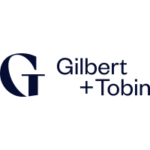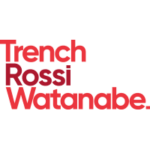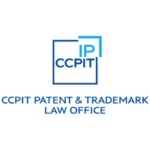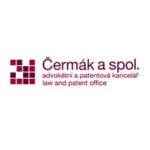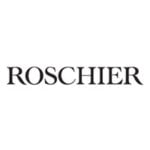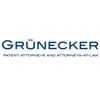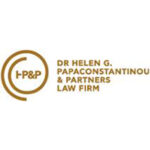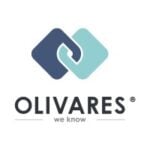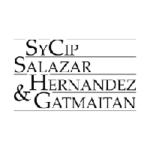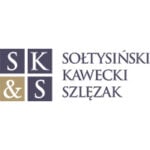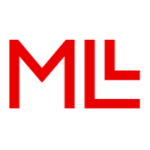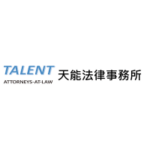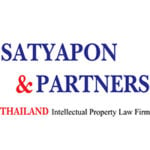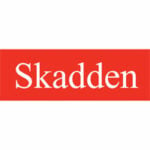-
What is the forum for the conduct of patent litigation?
The Paris District Court has exclusive jurisdiction over patent litigation, whether it involves a French national patent or the French part of a European patent. Thus, the Paris District Court hears patent infringement and invalidity proceedings, as well as all patent-related claims, such as claims pertaining to patent ownership or patent license agreements.
Patent cases are handled exclusively by the third chamber of the Paris District Court. This chamber has three sections. Each section is composed of a panel of three full-time judges specialized in French and European patent law, but with no technical background. A panel of three judges handles cases on the merits while preliminary injunctions and ex parte proceedings are brought before a single judge.
French patents may also be opposed before the French PTO (INPI – National Institute of Industrial Property) while the French part of a European patent may be opposed before the European Patent Office (see Question 16).
-
What is the typical timeline and form of first instance patent litigation proceedings?
Proceedings on the merits before the Paris District Court typically last 18 – 36 months from the filing of the complaint to the Court’s decision. However, this timeline may be extended depending on the number of patents at stake, the number of parties, and the complexity of the case.
The complaint:
Though it is not a legal requirement, patent litigation proceedings on the merits are meant to be “front-loaded”, i.e. French judges expect the complaint to contain the plaintiff’s full reasoning on claim construction and on infringement. The documents evidencing the infringement must be listed in the complaint.
Case-Management:
Once the complaint has been served on the defendant and filed with the Court, the clerk of the Court allocates the case to one of the three sections of the third chamber, and the Presiding judge of said section appoints a case-management judge. The case-management judge is responsible for setting the schedule for the filing of the parties’ briefs and evidence. He has jurisdiction to hear a wide array of motions pertaining in particular to compliance with strictly procedural requirements (e.g. formal irregularity of the complaint). He can also issue various interim decisions, for instance to enjoin a party to file a brief or submit evidence. When the case-management judge considers that the parties’ arguments and claims have been sufficiently developed and that the case is ready to be heard by the panel, he closes the written proceedings and sets a date for the final oral hearing. At this point, further briefs and/or evidence are no longer admissible.
Final oral hearing:
The final oral hearing usually takes place a few weeks after the closing of the written proceedings. The hearing takes place before a panel of three judges and can range from two hours to two full days. During the hearing the judges may ask questions but usually rather listen to the attorneys’ oral arguments. Judges do not give any indication of their possible opinion during the oral hearing. In particular, they do not announce their decision orally at the end of the oral hearing. When the time allocated to the oral hearing is off, the Presiding judge of the panel closes the hearing and merely announces the date on which the Court will issue its written decision. The Court generally issues its written decision one or two months after the final oral hearing.
The first instance decision:
The first instance decision in proceedings on the merits usually includes a single verdict covering all issues of the case including validity, infringement, liability, and a declaratory judgment on damages while final damages are the subject of a subsequent decision (see Question 24). As a result, infringement and invalidity proceedings are usually not bifurcated and issues of claim construction are considered together with validity and infringement. There have been a few cases in the recent past where the Paris District Court has deviated from its usual approach and decided to hear validity and infringement issues in a first step, and FRAND licence issues in a subsequent step. However, these remain isolated cases and “sequencing” the case is not the norm in France today.
Expedited proceedings on the merits:
In particularly urgent cases, the Presiding judge of the Paris District Court may authorize the plaintiff to initiate expedited patent infringement proceedings on the merits (procédure à jour fixe). These proceedings are virtually identical to ordinary patent infringement proceedings except that they are substantially faster (three to four months). However, the Presiding judge rarely authorizes expedited patent infringement proceedings on the merits, since preliminary injunction proceedings are available (see Question 23).
-
Can interim and final decisions in patent cases be appealed?
A first instance decision on the merits may be appealed without any special permission before the Paris Court of Appeal within one month from the date it was served on the appellant if the latter resides in France. The appeal deadline is extended by two additional months if the appellant resides abroad.
Interim decisions may also be appealed without any special permission before the Paris Court of Appeal. However, if the interim decision is rendered by the case-management judge in charge of the ongoing infringement proceedings on the merits, it can only be appealed together with the decision on the merits once the latter has been issued. If the interim decision is rendered by the presiding judge of the Paris District Court (juge des référés), it can be appealed before the Paris Court of Appeal within 15 days from the date it was served on the appellant if the latter resides in France. The appeal deadline is extended by two additional months if the appellant resides abroad. If an interim decision is appealed, the appeal proceedings before the Paris Court of Appeal proceed in parallel with the first instance infringement proceedings on the merits before the Paris District Court.
The Court of Appeal reviews the dispute in full (de novo). New claims cannot be raised before the Court of Appeal, but parties can raise new arguments and produce new evidence such as additional prior art documents or evidence of infringement. Interim decisions are not stayed pending appeal. First instance decisions on the merits issued in proceedings initiated after January 1, 2020 are not stayed pending appeal either, except where the First Instance Court considers that provisional enforcement of the decision is incompatible with the nature of the case, which is rare in practice.
Appeals in patent cases are handled by the Fifth Division of the Paris Court of Appeal which comprises two chambers of three judges specialised in French and European patent law but with no technical background. The average duration of appeal proceedings is 24 months.
The Paris Court of Appeal’s decisions may themselves be appealed before the French Supreme Court (Cour de cassation). This appeal is limited to the review of issues of law only and typically lasts 24 months.
-
Which acts constitute direct patent infringement?
The following acts constitute direct patent infringement (Art. L. 613-3 of the French Intellectual Property Code “IPC”):
- Making, offering, putting on the market, using, importing, exporting or transshipping a product which is the subject matter of the patent, or stocking such a product for said purposes;
- Using a process which is the subject matter of the patent or, when the third party knows, or it is obvious in the circumstances, that the use of the process is prohibited without the consent of the owner of the patent, offering the process for use on French territory;
- Offering, putting on the market, using, importing, exporting or transshipping the product obtained directly by a process which is the subject matter of the patent, or stocking such product for said purposes.
However, a party other than the manufacturer or importer of the infringing product (e.g. a reseller) can only be held liable for the offering for sale, putting on the market, use, holding with a view to use and putting on the market of an infringing product if it can be proven that this party knew it was infringing the patent at issue. In practice, patentees send warning letters to make resellers aware of the infringement. These letters must be drafted with extreme caution and in measured terms if they are sent while no court decision has ruled on infringement yet. French Courts may indeed find that a warning letter sent to a reseller to make him aware of the alleged infringement constitutes disparagement harming the manufacturer or importer of the allegedly infringing product.
The “offer” of a patented product or process includes the acts of preparation for a launch on the French market. Such an offer must be sufficiently linked to the French territory, e.g. the presentation of a patented product in a trade fair, or an advertisement related to the future launch a patented product or service on the French market.
-
Do the concepts of indirect patent infringement or contributory infringement exist? If so, what are the elements of such forms of infringement?
Yes, the concept of contributory infringement exists in France. A party is liable for contributory infringement where it supplies or offers to supply to persons other than those entitled to exploit the invention, means for implementing the invention with regard to an essential element thereof, when this party knows or it is obvious from the circumstances that such means are suitable and intended for implementing the invention (Art. L. 613-4 IPC). The prohibition does not apply if such means are common commercial items, unless that party induces the person to whom it supplies these means to commit acts of direct patent infringement.
-
How is the scope of protection of patent claims construed?
Under French Law, patent claims must be construed in light of the description and drawings, from the viewpoint of the skilled person at the filing date /priority date (Art. L. 613-2 IPC). The patent defines its own dictionary, such that the general meaning of a term in the art is not decisive if the patent ascribes another meaning to this term. The claim construction must be made bearing in mind that the skilled person excludes any interpretation that would be illogical with respect to the description and drawings.
Legally speaking, there is no file-wrapper estoppel in France. Statements made by the patent owner in the course of the examination procedure should, in principle, have no effect on the scope of the patent, and are not binding on the patent owner and the Court. However, in practice, it is difficult to convince the Court to disregard statements made by the patentee during examination/opposition proceedings.
French courts apply a pretty broad doctrine of equivalents under which patent infringement is constituted even if the patented means is not reproduced in its entirety by the allegedly infringing device, provided that this device performs the same function as the patented means for the same or similar result and that this function is novel within the context of the patent claim.
-
What are the key defences to patent infringement?
Key defences to patent infringement are primarily relying on an invalidity counterclaim and a non-infringement defence.
Other main defences include:
- Procedural defences pertaining to non-compliance with strictly procedural requirements (e.g. formal irregularity of a procedural deed).
- Motions for inadmissibility to have the claim dismissed based on the plaintiff’s lack of standing to sue (e.g. statute of limitations, plaintiff’s lack of legal interest, or res judicata).
- Insufficient evidence of the alleged infringement (e.g. as a result of the invalidity of an infringement seizure report or a bailiff report).
- Filing an opposition against the patent before the French PTO (INPI) or the European Patent Office (EPO) if the patent was granted less than nine months ago (see Question 16).
- Exhaustion doctrine: If the patentee has consented to a first sale of the patented product within the European Economic Area, this product is deemed non-infringing (Art. L. 613-6 IPC).
- Licence defence: the defendant can rely on patent licence agreement, e.g.: a patent licence agreement entered into between the patentee and its supplier.
- SEP defence: A defendant that faces an injunctive claim based on a standard-essential patent (SEP) can argue patentee has failed its duty to license the SEP on fair, reasonable and non-discriminatory (FRAND) terms and hence abuses its dominant market position and violates antitrust laws (ECJ, 16 July 2015. Huawei v ZTE, Case C-170/13). The defendant can also refute the essentiality of the patent at issue, which often leads to contesting infringement.
- Insufficient evidence of the alleged harm suffered by the plaintiff.
The defendant can also argue that the allegedly infringing acts fall within one of the following categories of acts which are deemed non-infringing by law (Articles L. 613-5 et seq. IPC), namely:
- Acts performed privately and for non-commercial purposes.
- Acts performed for experimental purposes relating to the subject matter of the patented invention.
- Acts related to the extemporaneous preparation of pharmaceuticals by pharmacists.
- Acts related to studies, tests, or trials conducted for the purpose of filing an application for a marketing authorisation for a medicinal product for human use or for veterinary medicinal products (Roche-Bolar exemption).
- Acts related to extra-atmospheric space vessels introduced into French territory.
- Acts related to the “farmers privilege”, which authorises a farmer to use the harvested product (for patents covering plant genetic information or plant material) or to use livestock (for patents covering animal genetic information or animal biological material) for his own exploitation.
- Acts performed to create, discover or develop new plant varieties.
- Acts related to prior personal use. Any party who was, in good faith, in possession of the invention in France before the filing or priority date may continue to use the invention.
-
What are the key grounds of patent invalidity?
Key grounds of patent invalidity are as follows (Art. L. 613-25 IPC and Art. 138 EPC):
- lack of novelty, inventive step, or industrial application;
- excluded subject matter (i.e. discoveries, scientific theories and mathematical methods; aesthetic creations; schemes, rules and methods for intellectual activities, games, business; presentations of information; computer programs; methods of surgical or therapeutic treatments of the human or animal body, and methods of diagnosis practised on the human or animal body; inventions the commercial exploitation of which would be contrary to human dignity, public policy or morality; the human body at different stages of its formation and development; animal breeds and plant varieties);
- insufficient disclosure;
- added subject-matter beyond the content of the application as originally filed;
- extension of the scope of the patent claims after limitation or amendment.
Article 612-6 IPC and Article 84 EPC provide that for a valid grant of a patent, the claims must be clear and concise and supported by the description. However, the lack of clarity of a claim is not an available ground of invalidity that a plaintiff may raise in the context of invalidity or opposition proceedings.
-
How is prior art considered in the context of an invalidity action?
Prior art includes everything that has been made available to the public before the filing date or priority date of the patent application by written or oral description, use or any other means. For the assessment of novelty only, prior art also includes French patent applications and European or international patent applications designating France which were filed before the filing date or priority date of the patent at issue but only published from that date onwards (Art. L. 611-11 IPC).
By way of exception, both French Law and the European Patent Convention provide that a disclosure of the invention shall not be taken into consideration for the assessment of novelty if it occurred within six months preceding the filing of the patent application and if it was due to, or in consequence of (i) an evident abuse in relation to the applicant or his legal predecessor, or (ii) the fact that the applicant or his legal predecessor has displayed the invention at an official, or officially recognised, international exhibition falling within the terms of the Convention on international exhibitions signed at Paris on 22 November 1928 (Art. L. 611-13 IPC and Art. 55 EPC). French Law also provides that the same applies where the disclosure of the invention results from the publication, after the filing date, of an earlier patent application, if it was due to (i) or (ii), irrespective of whether this disclosure occurred prior to six months preceding the filing of the patent application.
According to an established case law, an invention may only be deemed to lack novelty if it is found in its entirety in a single prior art document which must be certain, with the same constituting elements, in the same form, the same arrangement, and the same functioning in view of the same technical result.
For assessing obviousness, several prior art documents may be combined if the court agrees that a skilled person would have been prompted to do so and if such a combination does not require any specific effort. French Courts usually apply the European Patent Office’s problem-solution approach. However, they are not bound to do so.
-
Can a patentee seek to amend a patent that is in the midst of patent litigation?
Yes, the patentee can amend a patent during invalidity proceedings and/or infringement proceedings, at any stage of the proceedings, including during appeal proceedings. The patentee must file an application for limitation with the French PTO (INPI) (Art. L. 613-25) or the EPO (Art. 105bis of the European Patent Convention “EPC”). In this case, the Court typically stays the proceedings although it is not compelled to do so. Third parties cannot oppose such amendment applications at the French PTO, which grants such amendments provided they do not breach validity requirements, for instance by extending the scope of the claims. The amendment is effective ex-tunc. However, third parties, including defendants, can immediately challenge the validity of the amended claim in court.
-
Is some form of patent term extension available?
The only form of patent term extension available in France is the Supplementary Protection Certificate (SPC). An SPC extends the term of protection of a patent on a medicinal product or a plant protection product for a maximum of five years and an additional six months in the case of a paediatric extension. The conditions for obtaining an SPC are set forth by EU Regulations (EC) No. 469/2009 (for medicinal products) and (EC) No. 1610/96 (for plant protection products). According to these regulations, an SPC is granted provided:
- the patented product is protected by a basic patent in force;
- a marketing authorisation for this patented product has been granted and is in force;
- said marketing authorization is the first marketing authorization granted for the patented product;
- the patented product has not already been the subject of an SPC.
SPCs are typically challenged in the context of invalidity or infringement proceedings in which an invalidity counterclaim is filed on the basis of non-compliance with the above-mentioned conditions. With respect to the first condition, if the expired basic patent is proven invalid, the SPC is deemed invalid ex tunc.
It should be noted that EU Regulation No. 2019/933 which came into force on July 1, 2019 has created an exception to SCP protection in favour of EU-based companies who are now entitled to manufacture a generic or biosimilar version of an SPC-protected medicine during the term of the SPC, if this is done exclusively for the purpose of exporting to a non-EU market where the protection has expired or never existed. This EU regulation also allows EU-based companies to manufacture a generic or biosimilar version of an SPC-protected medicine six months before the expiry of the SPC.
-
How are technical matters considered in patent litigation proceedings?
Although French procedural rules allow French Courts to appoint expert witnesses, they do not do so. Rather, French Courts rely on the parties’ arguments and evidence which address technical matters and are typically supported by written opinions of competing experts retained by the parties themselves. These competing experts do not testify during oral hearings and cannot be cross-examined.
-
Is some form of discovery/disclosure and/or court-mandated evidence seizure/protection (e.g. saisie-contrefaçon) available, either before the commencement of or during patent litigation proceedings?
French Law provides two mechanisms for obtaining evidence from the defendants, namely the “Infringement seizure” and the “Right of information”.
Infringement seizure
The main mechanism available for compelling the obtaining and protecting of evidence is the infringement seizure (saisie-contrefaçon), which is an evidentiary measure provided by French procedural law for collecting evidence of an alleged infringement through a power of investigation.
By filing an ex parte application before the Presiding judge of the Paris District Court, the patentee may seek a court order granting authorization to have a bailiff visit the premises of a third party (e.g. an alleged infringer, a reseller of the infringing product, a transportation company, French customs, etc.) for the purpose of collecting evidence of (i) the existence, (ii) the origin and (iii) the extent of the purported infringement.
The bailiff’s powers are listed in the court order. Most commonly the bailiff may (i) ask questions, (ii) request documentation, (iii) draw an official description of the allegedly infringing product/process, (iv) physically seize samples of the allegedly infringing product, and/or (v) collect technical, commercial as well as accounting documents.
The bailiff may be assisted by various experts such as a patent attorney, including the patentee’s own patent attorney, a technical expert, a photographer, etc., all of whom are appointed and chosen by the plaintiff. The bailiff may also be assisted by law enforcement officers.
However, the judge may: (i) limit the scope of the authorized operations and/or (ii) order that any item/document seized be kept by the bailiff under provisional escrow in order to protect the seized party’s trade secrets.
The purpose of the seizure is only to gather evidence in view of an infringement action, which must be filed within thirty-one calendar days following the seizure, failing which the seizure will be deemed void and the defendant will be entitled to damages.
It should be noted that a seizure is not equivalent to discovery-type proceedings. The main difference is that the court order for the seizure is issued without any prior notice to or consent from the defendant.
There is no duty of disclosure or discovery before French courts.
However, a judge can order or facilitate submission of evidence. Indeed, parties may request at any stage of the proceedings (pre-trial proceedings, case management proceedings, proceedings on the merits) court orders to gather additional information or evidence related to the infringement such as information to determine the origin of the infringement, the distribution networks of the infringing products and their quantities and prices.
Right of information
A party can request the Court or, in the course of the proceedings, the case management judge, to order, under penalty, the defendant to produce information relating to the alleged infringement concerning, for instance, the distribution networks and the price and quantities of the infringing goods.
-
Are there procedures available which would assist a patentee to determine infringement of a process patent?
The patentee can perform an infringement seizure to have a bailiff visit the defendant’s premises and collect evidence of the infringement of a process patent (see Question 13).
Furthermore, the court can order the defendant to prove that the process used to obtain an identical product is different from the patented process (Art. L. 615-5-1 IPC). In order to obtain this reversal of the burden of the proof, the plaintiff needs to show that its product and the defendant’s product are identical and that it has made efforts to prove that the defendant’s product infringes the process patent. In case the court orders the reversal of the burden of proof, and the defendant fails to prove that its product was obtained through a different process, any identical product manufactured by the defendant is presumed to have been obtained by the patented process if (i) the product obtained by the patented process is new, or (ii) while the patentee could not despite reasonable efforts determine which was used, it is highly likely that the identical product was obtained by the patented process.
There is very limited case law on the implementation of this provision, most likely due to the effectiveness of the infringement seizure. The few decisions rendered in that regard merely order the reversal of the burden of the proof with no further details on how the defendant should proceed.
-
Are there established mechanisms to protect confidential information required to be disclosed/exchanged in the course of patent litigation (e.g. confidentiality clubs)?
Patent infringement proceedings before French Courts are confidential except for the final oral hearing and the written decisions issued by the Courts. The parties’ briefs and evidence are only accessible to the parties themselves.
Furthermore, as a result of the implementation of Directive (EU) 2016/943 through Law No. 2018-670 of 30 July 2018 on the protection of trade secrets, French Courts may now sua sponte or upon request examine the documents, seek the parties’ opinion, appoint an expert and then decide that confidential documents be redacted or summarized, restrict access to such documents to a confidentiality club limited to one natural person and one lawyer for each party, hold a closed final oral hearing, and redact their decisions (Art. L. 153-1 of French Commercial Code). In addition to these measures, following an infringement seizure, French Courts may also order that seized documents be kept by the bailiff under escrow so that the plaintiff may not access them until the Court has issued a decision or the parties have come to an agreement on the disclosure of these documents.
-
Is there a system of post-grant opposition proceedings? If so, how does this system interact with the patent litigation system?
Anyone, including a straw man, can file an opposition against a French patent before the French PTO (INPI) or against a European patent before the European Patent Office (EPO), within nine months of the grant.
If opposition proceedings before an office and proceedings before a French Court are pending in parallel, the interplay between them depends on whether the opposition was filed before the French PTO or the EPO, irrespective of whether the opposition was filed before or after the introduction of the judicial proceedings. The EPO is required to stay the opposition proceedings where a claim for patent ownership has been filed before a French court. The French PTO is required to stay the opposition proceedings where either a claim for patent ownership or an invalidity claim has been filed before a French Court.
French Courts may decide to stay the proceedings when an opposition is pending before the French PTO or the EPO to ensure good administration of justice. To determine whether they should grant the stay, French Courts take into consideration the strength of the opposition, the stage of the opposition proceedings, and the extent of any harmful consequences of a possible stay for both the patentee and alleged infringer.
-
To what extent are decisions from other fora/jurisdictions relevant or influential, and if so, are there any particularly influential fora/jurisdictions?
French Courts do not necessarily follow foreign decisions, whether these decisions relate to a relevant issue for which no precedent in national law exists or a parallel patent. They may, however, consider these decisions with due care, in particular those issued by the UK, German, Dutch and Italian courts.
-
How does a court determine whether it has jurisdiction to hear a patent action?
In France, the Paris District Court has exclusive jurisdiction over patent litigation, whether it involves a French national patent or the French part of a European patent.
The Paris Court has also asserted its jurisdiction to perform a global FRAND rate determination in two recent cases in which an alleged infringer had sued both the patentee and, as a co-defendant, the France-based SSO European Telecommunication Standards Institute – ETSI (Paris District Court, December 7, 2021, Cases Nos. 20/12558 and 20/12558, Xiaomi v. Phillips & ETSI; February 6, 2020, Case No. 19/02085 TCL v. Philips and ETSI].
French courts do not have jurisdiction to consider questions of validity in respect of foreign patents. However, in line with the Solvay v. Honeywell decision of the European Court of Justice (C-616/10), the French Supreme Court has recently held that French Courts may decide questions of infringement in respect of foreign patents on the basis of Article 8.1 of Regulation (EU) No. 1215/2012 on jurisdiction, recognition and enforcement of judgments in civil and commercial matters (“Brussels I bis”) to prevent irreconcilable solutions from jurisdictions of different EU Member States (Cass. 1st civil Ch., 29 June 2022, G 21-11.085, Hutchinson v. Tyron Runflat et al). The French Supreme Court also found that French Courts may rule on acts of infringement committed in a non-EU Member State on the basis of Article 14 of the French Civil code which grants jurisdiction to French court on the sole ground that the plaintiff is a French national.
French Courts do not grant anti-suit injunctions and only sanction them in the very specific case where they aim at ensuring the effect of a pre-existing jurisdiction clause in a contract. However, French Courts have recently issued their first ever anti-anti-suit injunctions, whereby they ordered U.S. companies to withdraw a motion for an anti-suit injunction they had filed with U.S. Court (Paris Court of Appeal, 3 March 2020 – Case No. RG 19/21426, IPCom v. Lenovo). In this case, the court found that a plaintiff being enjoined by a U.S. court from initiating patent infringement proceedings was manifestly illegal, because it violated the exclusive jurisdiction of French courts and two fundamental rights of the plaintiff: its right to (intellectual) property under Protocol 1 of the European Convention of Human Rights and the right to a fair trial under Article 6 ECHR, which includes the right of access to court.
-
What are the options for alternative dispute resolution (ADR) in patent cases? Are they commonly used? Are there any mandatory ADR provisions in patent cases?
The parties can choose to engage in arbitration proceedings, for instance before the International Chamber of Commerce in Paris. This is, however, quite rare in practice.
An optional ADR mechanism with the French PTO (INPI) may be used in the context of disputes between an employee inventor and its employer over inventions of the employee to decide on patent ownership and the employee’s financial compensation.
-
What are the key procedural steps that must be satisfied before a patent action can be commenced? Are there any limitation periods for commencing an action?
A patent infringement action can be commenced at any time on the grounds of a granted patent or a published patent application. If the patent application has not yet been published, it is still possible to commence a patent infringement action against an alleged infringer if the latter has been notified of the patent application. If a patent infringement action is commenced on the grounds of a patent application, the Court will stay the proceedings on the merits until the patent is granted.
It is common, although not mandatory, for the plaintiff to send a warning letter to the defendant before taking legal action. By way of exception, in SEP cases, the Huawei v. ZTE case of the European Court of Justice set forth some mandatory steps that must be satisfied before a patent action can be commenced.
The French Parliament recently amended the statutes of limitations to initiate a patent infringement action. As a result, the statute of limitations differs depending on whether the acts of infringement occurred before or after May 24, 2019:
- Acts of infringement that occurred before May 24, 2019 are subject to the former statute law, namely a five-year statute of limitations that runs from the time the act was committed.
- Acts of infringement that occurred after May 24, 2019 are subject to the new statute law, namely a five-year statute of limitations that runs from the day the plaintiff knew or should have known the last fact enabling him to initiate the action.
Patent invalidity actions are not subject to any statutes of limitations.
-
Which parties have standing to bring a patent infringement action? Under which circumstances will a patent licensee have standing to bring an action?
Since June 1, 2023, a patent infringement action may be brought by:
- the patentee;
- the exclusive licensee, provided that (i) the license agreement does not stipulate otherwise, and (ii) the exclusive licensee gives prior notice to the patentee;
- the non-exclusive licensee, provided that (i) the license agreement does not stipulate otherwise, and (ii) the patentee did not take action after he was put on notice to do so by the non-exclusive licensee;
- the holder of a compulsory license or an ex officio license within the meaning of Articles L. 613-11, L. 613-15, L. 613-17, L. 613-17-1 and L. 613-19 IPC, provided that the patentee did not take action after he was put on notice to do so by the holder of the license;
The patentee may voluntarily join infringement proceedings initiated by the licensee. Any licensee may voluntarily join infringement proceedings initiated by the patentee to claim compensation for its own harm.
Until recently, the patentee or the licensee had to be recorded as such with the French patent register in order to bring legal action,. However, in a recent Sony decision dated April 24, 2024 (No. 22-22.999), the French Supreme Court ruled that failure to record a license can be remedied even during the course of proceedings. In such circumstances, a plaintiff is admissible to claim damages for the infringing acts committed after the transfer of rights, even prior to the recordal, and before the transfer of rights if the agreement provides so.
If the patent is co-owned, each of the co-owners may initiate infringement proceedings for its own benefit, but it must inform the other co-owners, unless otherwise provided in the co-ownership agreement.
-
Who has standing to bring an invalidity action against a patent? Is any particular connection to the patentee or patent required?
The plaintiff in an invalidity action must show that the patent hinders its current business or is likely to hinder “a real and serious project”. In practice, French courts find that the plaintiff has standing to bring an invalidity action if the patent falls within the plaintiff’s line of business.
-
Are interim injunctions available in patent litigation proceedings?
Interim injunction proceedings, more often referred to as preliminary injunction proceedings, are available inter partes or ex parte. In the vast majority of cases, preliminary injunction proceedings are conducted inter partes. However, in exceptionally urgent cases – where there is a risk of irreparable harm to the plaintiff – the injunction may be granted ex parte, without the defendant being heard. In practice, it is difficult to obtain an ex parte preliminary injunction on the sole ground of urgency. Rather, the plaintiff must demonstrate (i) the need for the defendant not to be heard (ii) and that an injunction is necessary because the award of damages alone would not be an adequate compensation. In practice, ex parte preliminary injunctions are extremely rare in France.
Preliminary injunctions proceedings are only available on the basis of a granted patent. This has been recently confirmed by the Paris Court of Appeal which overturned the Paris Judicial Court’s decision in Novartis v Biogaran granting a preliminary injunction on the basis of a European patent application (Paris Judicial Court, 3 June 2022, No. 22/52718; Paris Court of Appeal, 22 March 2023, No. 22/11165).
The patent that is the subject of the preliminary injunction does not need to be a “battle-tested” patent (i.e.: a patent which has been maintained further to opposition or invalidity proceedings). However, the fact that the patent is “battle-tested” is a “plus”, which may play in favour of the patentee. In this sense, ECJ case C 44/21 Phoenix Contact of April 28, 2022 has had little to no impact on French preliminary injunction proceedings.
An application for preliminary injunction – either ex parte or inter partes – may be filed before or after the action on the merits has been filed. If it is filed before the action on the merits, it must be filed before the presiding judge of the Paris District Court (juge des référés). In that case, if the preliminary injunction is granted, the plaintiff must initiate an action on the merits within 31 days from the date of the preliminary injunction order, otherwise the latter is null and void. If the application for preliminary injunction is filed after the action on the merits, the application for preliminary injunction must be filed before the case-management judge in charge of these proceedings.
Except for ex parte preliminary injunctions, there is no need to demonstrate urgency. The fact that an infringing activity may have continued for many months to the knowledge of the applicant will not as such deprive the applicant from applying for and obtaining a preliminary injunction. Delaying preliminary injunction proceedings may have negative consequences to the extent that it may be taken into account by the court in its proportionality test as an argument against the patentee’s claim. There have been cases where French courts have refused to grant a preliminary injunction on the basis, among other findings pertaining to validity/infringement, that the patentee had waited a long time to initiate the preliminary injunction proceedings while being aware of the infringement (e.g.: Paris Judicial Court, July 7, 2023, No. 23/53538).
The judge may grant a preliminary injunction if the plaintiff can demonstrate that “the reasonably available evidence make it likely that the plaintiff’s rights are being infringed or that such infringement is imminent” (Art. L. 615-3 IPC).
The judge will take into account, if challenged by the defendant, both the prima facie validity of the patent-in-suit and the prima facie likelihood of infringement. However, the judge will not make an in depth analysis of the validity of the patent, since this is the role of the Court ruling on the merits of the case. The judge will also conduct a proportionality test, i.e. a balance of interests between the seriousness of the defendant’s arguments and the preliminary injunction, in light of the risks incurred by both parties.
The court may require a cross-undertaking in respect of damages. However, French courts most often reject defendants’ requests to that effect.
Preliminary injunction proceedings typically take two to four months from the filing of the PI complaint to the issuance of an enforceable decision.
A patentee may also initiate expedited preliminary injunction proceedings if it has been authorized to do so by the Judge upon demonstration of urgency. However, there are only a handful of cases in which such authorization was given and they are mostly drug patent cases in which a generic drug has just been released or the release of which is imminent. On average, expedited PI proceedings take 1-2 months.
-
What final remedies, both monetary and non-monetary, are available for patent infringement? Of these, which are most commonly sought and which are typically ordered?
Both monetary and non-monetary remedies are available for patent infringement. Non-monetary remedies include injunctive relief, recall, destruction, claims for information and rendering of accounts and the publication of the judgment:
- Subject to the exceptions listed under Question 26, an injunction is granted further to a finding of infringement. Injunctions are generally subject to penalties (per day or per act of infringement).
- The court may order the infringer to recall infringing products from commercial networks and to destroy them at its expense.
- The court may order the infringer to disclose information on the extent of the infringement (including rendering of accounts) or the identity of third parties involved in the infringement, which allows the patentee to then enforce the patent against other third parties involved in the production or distribution channels. Information about the extent of the infringement and rendering of accounts also allows the patentee to calculate its damages claim based on the infringer’s sales figures.
- The court may order publication of the judgment in favour of the patentee, in full or in part, in newspapers or online, at the request of the patentee and at the infringer’s expense.
The only available monetary remedy is damages (see Question 25). The infringer is liable for damages further to a finding of infringement. In the context of patent infringement proceedings, damages are most of the time initially claimed in the form of a declaratory judgment due to the lack of information to calculate their precise amount. Once the court has issued its decision on the merits and that it has been enforced successfully, the patentee can calculate the damages based on the information provided by the infringer and seek payment of damages in a further decision.
-
On what basis are damages for patent infringement calculated? Is it possible to obtain additional or exemplary damages? Can the successful party elect between different monetary remedies?
French courts typically consider three factors when they calculate damages for patent infringement, i.e. the plaintiff’s lost profits, the infringer’s profits, and the plaintiff’s moral prejudice.
Alternatively, the plaintiff can request that damages be awarded in the form of a lump sum that must be higher than the hypothetical royalty that reasonable parties would have agreed for the use of the patent. To that end, the plaintiff typically provides comparable licenses. The actual hypothetical rate of this a posteriori license is determined by the Court It generally corresponds to the average applicable rate, increased by fifty per cent.
French Law does not provide for punitive damages or exemplary damages.
-
How readily are final injunctions granted in patent litigation proceedings?
In principle, a final injunction is a consequence of a finding of infringement in patent litigation proceedings on the merits. There are no statutory provisions under French Law which would allow a Court to deny a final injunction further to a finding of infringement, based on factors such as public interest and/or proportionality.
By way of exception, an injunction may not be granted in rare situations, i.e. in the following cases:
- when the patent has expired at the date of the decision;
- when a SEP/FRAND issue prevents any injunction;
- when a compulsory licence has been granted; or
- when a national defence exploitation is at stake (Article L. 615-10 IPC).
-
Are there provisions for obtaining declaratory relief, and if so, what are the legal and procedural requirements for obtaining such relief?
French Law provides for the possibility of obtaining a declaratory judgment of non-infringement (Art. L. 615-9 IPC).
Any party which can prove that it is engaged in an industrial activity in the territory of a Member State of the European Economic Community or making effective and serious preparations to engage in such activity may request a patentee to take position on the enforceability of a patent against this activity. Practically, this party must write to the patentee and provide the latter with sufficiently detailed information for him to take a position. If the patentee has not taken a position within three months, or if the party disagrees with the patentee’s position, it can bring an action to seek a declaratory judgment for non-infringement. Bringing this action does not preclude the party to subsequently seek the invalidity of the patent at issue or the patentee to sue for infringement.
These actions are relatively rare in France and invalidity actions / opposition proceedings are usually preferred.
-
What are the costs typically incurred by each party to patent litigation proceedings at first instance? What are the typical costs of an appeal at each appellate level?
Court fees are negligible in France, where the judicial system is essentially funded by the State. The same applies to administrative proceedings before the French PTO (INPI). The costs of patent litigation proceedings are therefore essentially made up of attorneys’ fees, bailiff costs related to the collection of evidence, and experts’ fees.
Typical attorney fees typically incurred by each party in first instance patent litigation proceedings range from EUR 150K-250K in a simple case involving one patent. However, factors such as the complexity of the case, the number of parties involved, and the legal and technical issues at stake can easily double or triple these costs. Costs for preliminary injunction proceedings are within the same range insofar as they imply the same amount of work as proceedings on the merits in a shorter time period. In patent cases where preliminary injunctions are sought, the costs for the proceedings on the merits are substantially lower because the arguments are similar in both proceedings.
The cost of appeal proceedings are typically between EUR 100K-150K, since they generally do not involve the presentation of new arguments.
The cost of an appeal before the French Supreme Court is generally in the range of EUR 50K.
-
Can the successful party to a patent litigation action recover its costs?
The recoverable costs of patent litigation proceedings consist primarily of attorneys’ fees, experts’ fees, and bailiff costs, namely costs incurred by the collection of evidence and the service of process of legal documents.
French courts usually compensate these costs in an amount that they discretionarily assess in light of the complexity of the case. In practice, they more and more frequently award the successful party its real costs. The costs order is included in the main decision on the merits. There are no separate proceedings regarding the recovery of costs. There is no procedural mechanism enabling or requiring security for costs. In order to maximize the chances of obtaining a full recovery of costs, parties may produce attorneys’ statements regarding fees. Parties do not settle their costs independently of their dispute.
-
What are the biggest patent litigation growth areas in your jurisdiction in terms of industry sector?
The biggest patent litigation growth areas in France include biotech/pharmaceutical and electronics/telecom.
-
How has or will the Unified Patent Court impact patent litigation in your jurisdiction?
As the Unified Patent Court (“UPC”) has only recently come into force, we have noticed little effect on the French patent litigation scene so far. This being said, there will certainly be a significant interplay between French Courts and the Unitary Patent Court in the future. While both the speed of UPC proceedings and the geographical scope of the available remedies may shift a portion of French national patent litigation to the UPC, France should remain an attractive forum due to its comparative advantages such as the infringement seizure or the affordable costs of patent litigation relatively to its significant inner market.
-
What do you predict will be the most contentious patent litigation issues in your jurisdiction over the next twelve months?
Following the above-mentioned French Supreme Court’s Hutchinson v. Tyron Runflat et al. decision (See Question 18), the issue of the extent to which French courts may rule on infringing acts committed abroad, including in non-EU Member States, may receive particular attention in the coming months.
-
Which aspects of patent litigation, either substantive or procedural, are most in need of reform in your jurisdiction?
The length of proceedings in complex multi-party patent infringement cases could be improved, particularly in the light of competition from the UPC. To this end, French courts could decide on shorter procedural calendars and make greater use of injunctions to force parties to file their response.
-
What are the biggest challenges and opportunities confronting the international patent system?
One of the main challenges facing the international patent systems is the fact that it is adversely perceived in the general public opinion. Instead of being seen as a positive tool which contributes to the creation and spread of new technologies, the general public seems to be concerned by its alleged negative effects, including the controversy over the possibility that patents may hamper the ability of governments to deal with policy issues (e.g. COVID-19 vaccine patents) or the fact that the increased number of patents on new technologies may defeat the original purpose of the patent system and rather lead to unfair restrictions on competition and limit consumer access to such technologies.
France: Patent Litigation
This country-specific Q&A provides an overview of Patent Litigation laws and regulations applicable in France.
-
What is the forum for the conduct of patent litigation?
-
What is the typical timeline and form of first instance patent litigation proceedings?
-
Can interim and final decisions in patent cases be appealed?
-
Which acts constitute direct patent infringement?
-
Do the concepts of indirect patent infringement or contributory infringement exist? If so, what are the elements of such forms of infringement?
-
How is the scope of protection of patent claims construed?
-
What are the key defences to patent infringement?
-
What are the key grounds of patent invalidity?
-
How is prior art considered in the context of an invalidity action?
-
Can a patentee seek to amend a patent that is in the midst of patent litigation?
-
Is some form of patent term extension available?
-
How are technical matters considered in patent litigation proceedings?
-
Is some form of discovery/disclosure and/or court-mandated evidence seizure/protection (e.g. saisie-contrefaçon) available, either before the commencement of or during patent litigation proceedings?
-
Are there procedures available which would assist a patentee to determine infringement of a process patent?
-
Are there established mechanisms to protect confidential information required to be disclosed/exchanged in the course of patent litigation (e.g. confidentiality clubs)?
-
Is there a system of post-grant opposition proceedings? If so, how does this system interact with the patent litigation system?
-
To what extent are decisions from other fora/jurisdictions relevant or influential, and if so, are there any particularly influential fora/jurisdictions?
-
How does a court determine whether it has jurisdiction to hear a patent action?
-
What are the options for alternative dispute resolution (ADR) in patent cases? Are they commonly used? Are there any mandatory ADR provisions in patent cases?
-
What are the key procedural steps that must be satisfied before a patent action can be commenced? Are there any limitation periods for commencing an action?
-
Which parties have standing to bring a patent infringement action? Under which circumstances will a patent licensee have standing to bring an action?
-
Who has standing to bring an invalidity action against a patent? Is any particular connection to the patentee or patent required?
-
Are interim injunctions available in patent litigation proceedings?
-
What final remedies, both monetary and non-monetary, are available for patent infringement? Of these, which are most commonly sought and which are typically ordered?
-
On what basis are damages for patent infringement calculated? Is it possible to obtain additional or exemplary damages? Can the successful party elect between different monetary remedies?
-
How readily are final injunctions granted in patent litigation proceedings?
-
Are there provisions for obtaining declaratory relief, and if so, what are the legal and procedural requirements for obtaining such relief?
-
What are the costs typically incurred by each party to patent litigation proceedings at first instance? What are the typical costs of an appeal at each appellate level?
-
Can the successful party to a patent litigation action recover its costs?
-
What are the biggest patent litigation growth areas in your jurisdiction in terms of industry sector?
-
How has or will the Unified Patent Court impact patent litigation in your jurisdiction?
-
What do you predict will be the most contentious patent litigation issues in your jurisdiction over the next twelve months?
-
Which aspects of patent litigation, either substantive or procedural, are most in need of reform in your jurisdiction?
-
What are the biggest challenges and opportunities confronting the international patent system?
